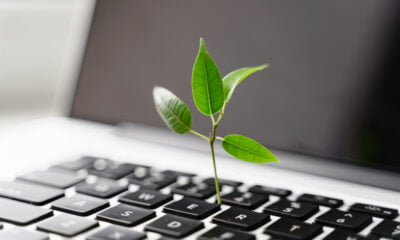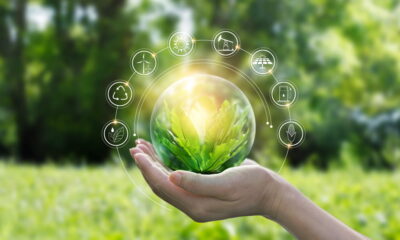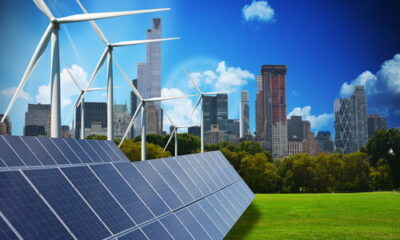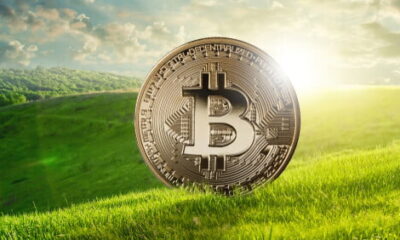

Environment
The inevitability of easing pressure on humanity’s ecological credit card
The Earth is currently in a period of ecological overshoot. We’re increasingly using more resources than are actually available to us on a yearly basis. Alex Blackburne writes how a shift towards a sustainable future, using fewer resources, is decisively inescapable.
The Earth’s resources are deteriorating at an alarming rate. Whilst Blue & Green Tomorrow isn’t here to scaremonger, we are here to highlight the growing need for sustainable living and investment.
The Earth is currently in a period of ecological overshoot. We’re increasingly using more resources than are actually available to us on a yearly basis. Alex Blackburne writes how a shift towards a sustainable future, using fewer resources, is decisively inescapable.
The Earth’s resources are deteriorating at an alarming rate. Whilst Blue & Green Tomorrow isn’t here to scaremonger, we are here to highlight the growing need for sustainable living and investment.
We realise the growing strain the human race is placing on some of the things it takes for granted.
In December, Blue & Green Tomorrow asked whether our investments are building the future we want for the following generations – namely our children and grandchildren.
Put simply, unsustainable investment is building a future that won’t exist.
That might sound overly mystical, but the fact is, if we carry on investing our money in unsustainable places, which in turn use up precious finite resources, there won’t be a future for our ancestors.
To put things in perspective, we’ve come up with an infographic that shows when some of the most valuable world resources will run out, based on the lives of the 679,029 children born in the UK in the year 2000.
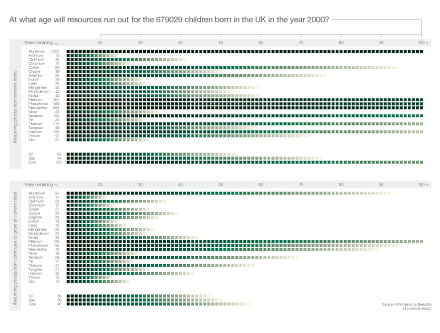
At what age will resources run out for the 679029 children born in the UK in the year 2000?: Ben Willers . (Click to enlarge).
Assuming production of these resources remains the same, the rates of complete exhaustion range from 13 years to 1,812 years. But assuming production continues to grow at the rate it is currently, then everything from the list will be extinct by the time those children reach 108.
Some of the elements in the chart are becoming scarce at an alarming rate. Antimony, for example, an element that is used to make drugs and batteries, has a lifespan of less than 15 years.
Chromium, which is used to make paint, is set to last just over that, whilst tin has a best case scenario existence of just 20 more years.
We will, one day, be using fewer resources. But whether this is by choice or not remains to be seen.
If we carry on the way we are, by 2050, the Earth will need over two planets worth of resources a year to survive.
Susan Burns, associate director of the Global Network Footprint, an international sustainability think-tank, described how humanity was “living off its ecological credit card” in this video explaining ecological overshoot, meaning we’re using more resources than we have.
There is inevitably going to be a point where we can’t continue anymore because there are simply no more resources left to exploit.
The UN’s Resilient People, Resilient Planet: A future worth choosing report highlights ways for businesses to adopt sustainable development, and Richard Branson’s Virgin Group has taken steps in the right direction.
The Big Red Box project personifies sustainable lifestyles, and asks people what sustainable idea they’d put in the box.
In a video documenting the thoughts of Virgin CEOs, Jean Oelwang of Virgin Unite said, “The world is facing a perfect storm right now. We have the environmental crisis, the poverty crisis and the financial crisis, and we strongly believe that businesses have to be part of the solution”.
Individuals like you can play a part, too.
Choosing to invest your money sustainably, ethically or responsibly in companies that don’t exhaust the Earth’s vital resources will go a long way to achieving an intentional lower resource usage.
Ask your financial adviser how to do this, or fill in our online form. We can help you make the switch.


 Environment12 months ago
Environment12 months agoAre Polymer Banknotes: an Eco-Friendly Trend or a Groundswell?

 Features11 months ago
Features11 months agoEco-Friendly Cryptocurrencies: Sustainable Investment Choices

 Features12 months ago
Features12 months agoEco-Friendly Crypto Traders Must Find the Right Exchange

 Energy11 months ago
Energy11 months agoThe Growing Role of Solar Panels in Ireland’s Energy Future
